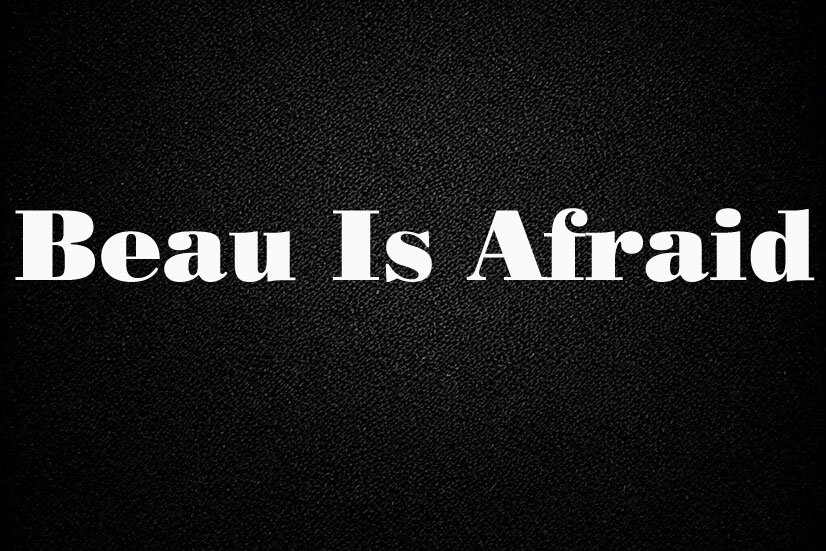Introduction
In recent years, cinema has increasingly explored themes of mental health, bringing to light the complexities of human emotions. “Beau Is Afraid” is a film that delves deep into the psyche of its protagonist, portraying the raw and often overwhelming experience of anxiety. Directed by the visionary filmmaker Ari Aster, this film offers a unique and compelling look at the impact of fear and anxiety on an individual’s life. This article will provide an in-depth analysis of “Beau Is Afraid,” its themes, and its significance in contemporary cinema.
The Story of “Beau Is Afraid”
Plot Overview
“Beau Is Afraid” follows the story of Beau, a man crippled by anxiety and paranoia. The narrative takes viewers on a journey through Beau’s troubled mind as he navigates a world filled with perceived threats and dangers. The film’s non-linear storytelling and surreal imagery create an immersive experience that reflects the chaotic nature of Beau’s internal struggles.
Characters
- Beau: The protagonist, whose overwhelming anxiety shapes the film’s narrative. His journey is a poignant exploration of fear and its debilitating effects.
- Supporting Characters: Various characters in Beau’s life, including family members, friends, and strangers, each representing different aspects of his fears and anxieties.
Themes Explored in “Beau Is Afraid”
Anxiety and Paranoia
The central theme of “Beau Is Afraid” is anxiety. The film portrays how anxiety can distort reality, making everyday situations seem insurmountable. Beau’s paranoia adds another layer to this, illustrating how fear can escalate and consume a person’s life.
Isolation
Isolation is another significant theme in the film. Beau’s anxiety isolates him from the world, creating a barrier between him and others. This isolation exacerbates his fears, making it difficult for him to seek help or connect with those around him.
Reality vs. Perception
“Beau Is Afraid” blurs the lines between reality and perception. The film uses surreal imagery and disjointed storytelling to convey how anxiety can alter one’s perception of reality. This theme challenges viewers to question what is real and what is a product of Beau’s mind.
Family Dynamics
Family plays a crucial role in Beau’s life and his anxiety. The film explores how familial relationships can influence one’s mental health, for better or worse. Beau’s interactions with his family reveal underlying tensions and unresolved issues that contribute to his anxiety.
Ari Aster’s Vision
Directorial Style
Ari Aster is known for his distinctive directorial style, characterized by unsettling atmospheres and psychological depth. In “Beau Is Afraid,” Aster uses these elements to create a visceral portrayal of anxiety. His use of surrealism and horror tropes effectively conveys the intensity of Beau’s fears.
Visual and Audio Elements
The film’s visuals are striking and often disorienting, mirroring Beau’s mental state. Cinematography plays a key role in immersing the audience in Beau’s world, using tight close-ups and distorted angles to evoke a sense of claustrophobia and unease. The audio design, with its haunting score and jarring sound effects, further enhances the film’s emotional impact.
The Impact of “Beau Is Afraid” on Viewers
Emotional Resonance
“Beau Is Afraid” has a profound emotional impact on viewers, particularly those who have experienced anxiety themselves. The film’s authentic portrayal of fear and its effects can be both cathartic and challenging, offering a window into the struggles of living with anxiety.
Raising Awareness
By depicting anxiety in such a raw and unfiltered manner, “Beau Is Afraid” raises awareness about mental health issues. The film encourages conversations about anxiety and the importance of understanding and supporting those who suffer from it.
Critical Acclaim
“Beau Is Afraid” has received critical acclaim for its bold storytelling and emotional depth. Critics have praised Ari Aster’s direction and the film’s powerful performances, particularly the portrayal of Beau. The film’s innovative approach to depicting mental health has solidified its place in contemporary cinema.
Conclusion
“Beau Is Afraid” is a poignant and thought-provoking film that delves into the depths of anxiety and fear. Through its compelling narrative, powerful performances, and innovative direction, the film offers a profound exploration of mental health and its impact on individuals. Ari Aster’s vision brings Beau’s struggles to life, creating an unforgettable cinematic experience that resonates with audiences. As we continue to explore the complexities of mental health in modern cinema, “Beau Is Afraid” stands out as a significant and impactful work.
FAQs
- Who directed “Beau Is Afraid”?
“Beau Is Afraid” was directed by Ari Aster, known for his work on psychological horror films.
- What is the main theme of “Beau Is Afraid”?
The main theme of “Beau Is Afraid” is anxiety and how it affects the protagonist’s perception of reality and interactions with the world.
- How does “Beau IsAfraid” depict anxiety?
The film uses surreal imagery, disjointed storytelling, and a haunting audio-visual design to convey the intensity and disorientation of anxiety.
- Why is “Beau IsAfraid” significant in modern cinema?
“Beau IsAfraid” is significant for its bold and authentic portrayal of mental health issues, raising awareness and fostering empathy for those experiencing anxiety.
- What impact has “Beau IsAfraid” had on viewers?
The film has resonated deeply with viewers, particularly those who have experienced anxiety, and has been praised for its emotional depth and innovative approach to storytelling.











